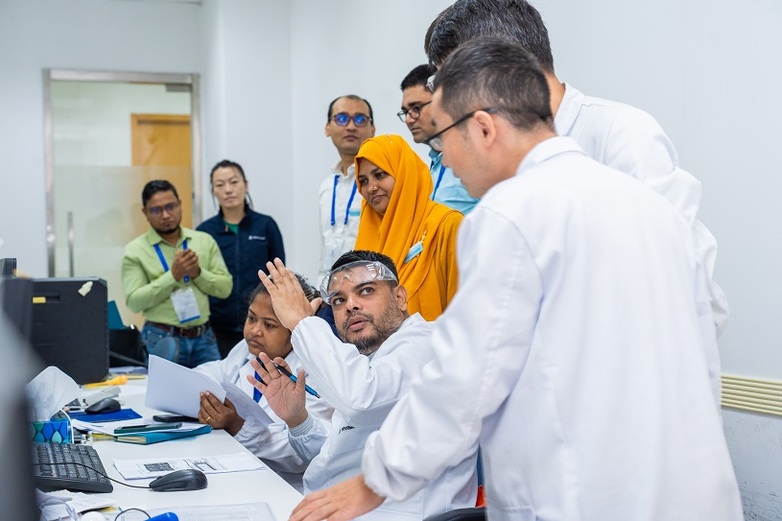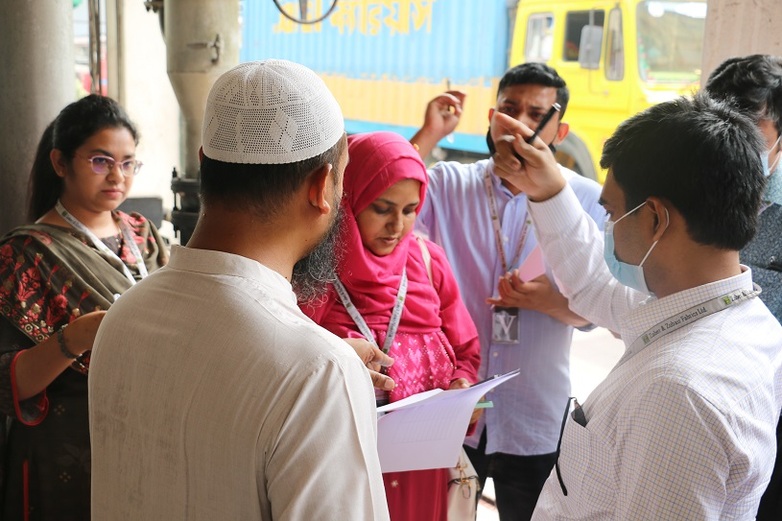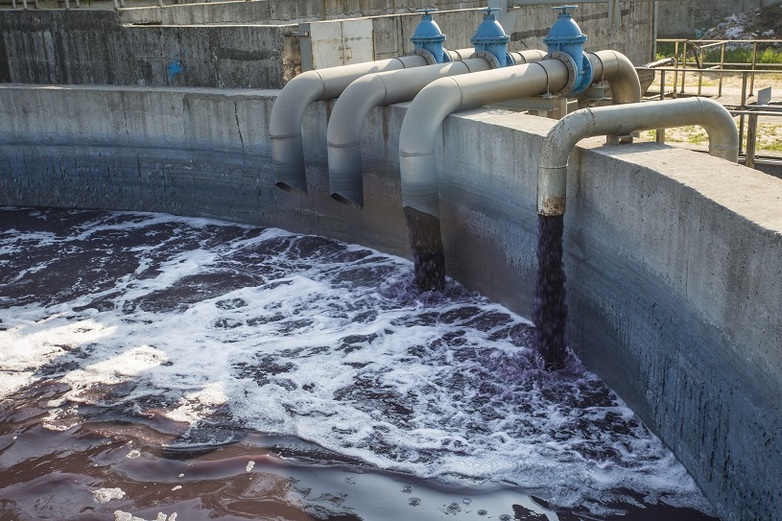Promoting sustainability in Bangladesh’s textile industry
Sustainability in the Textile Sector II (STILE II)
 © GIZ / Noor Alam
© GIZ / Noor Alam
Sustainability in the Textile Sector II (STILE II)

German Federal Ministry for Economic Cooperation and Development (BMZ)

Bangladesh

Bangladesh, Ministry of Commerce (MoC)
Bangladesh - Ministry of Commerce (MoC)

2024 to 2027

Economic development and employment
 © GIZ / TÜV Rheinland
© GIZ / TÜV RheinlandBangladesh is the world's second largest exporter of garments and textiles after China. The textile industry employs more than four million people, making it one of the country’s main sources of revenue.
New and revised requirements have been introduced in the European Union (EU), for example on product ecodesign and corporate due diligence. As a result, European brands and retailers are required to take effective action to address relevant risks along their supply chains and to demonstrate that they are taking steps to meet their human rights and environmental due diligence obligations. To avoid losing access to the lucrative EU market, textile and garment manufacturers in Bangladesh – including indirect suppliers – have to invest in environmentally friendly production and fair working conditions. This also includes gender equality.
 © GIZ / Noor Alam
© GIZ / Noor AlamPublic and private-sector decision-makers have implemented measures to modernise the textile and garment industry in Bangladesh – in line with EU sustainability requirements.
 © GIZ / Noor Alam
© GIZ / Noor AlamThe project is working to bring supply chains and the legal framework in Bangladesh into line with EU sustainability requirements. This is intended to pave the way for better environmental and working conditions, and for the export of more and higher-priced goods.
The project helps ministries to coordinate better on environmental and social standards and engage in dialogue with the private sector. It also provides advice on policy instruments to ensure that the statutory regulations are binding for manufacturers and respond to the sustainability requirements.
In addition, the project supports factories in preparing to comply with EU sustainability requirements and in meeting climate targets.
It promotes civil society engagement and advisory services for workers in order to boost gender equality in the workplace and in the community.
Last update: October 2024